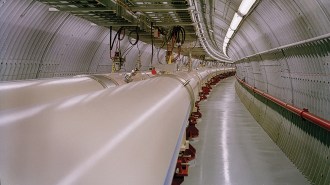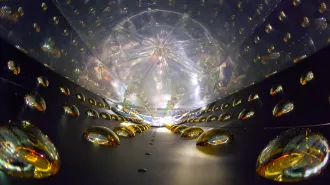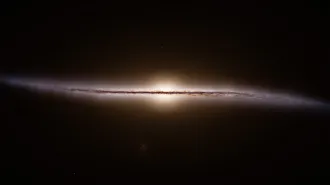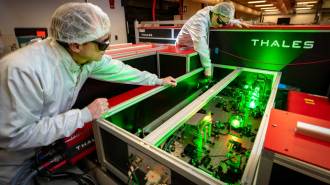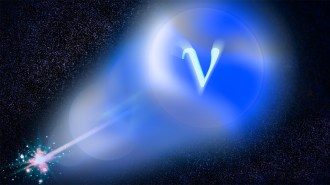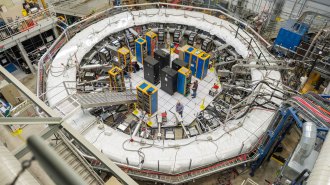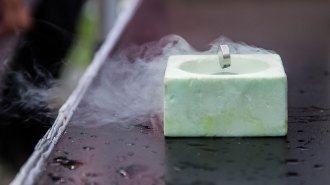Upon further review, suspected new particle vanishes
Hints of discovery fade away with new data from Large Hadron Collider
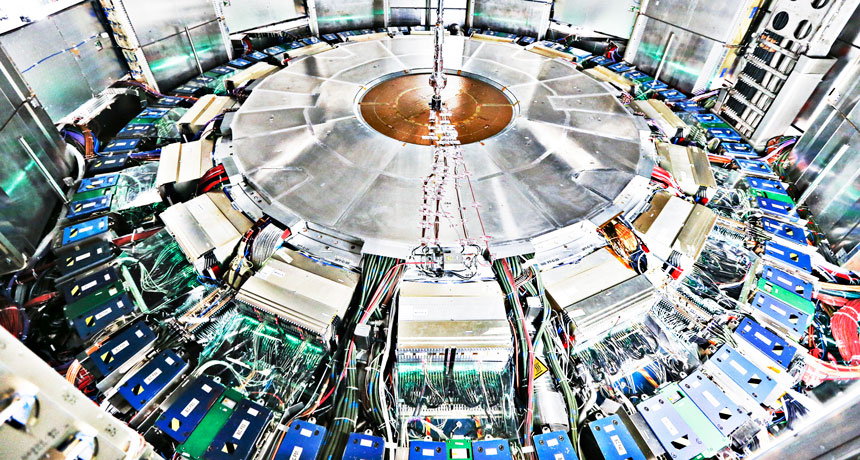
PARTICLE PERISHES Two experiments at the Large Hadron Collider, ATLAS (shown above) and CMS, have seen no evidence of a new particle in their most recent data, despite previous hints.
CERN
